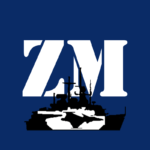SpearUAV, the manufacturer of the Viper family of loitering munitions, announced on 16 December a USD20 million contract for its Viper 300 AI-based loitering munition systems to an undisclosed client. Zona Militar had an exclusive conversation with Yiftach Kleinman, deputy CEO of SpearUAV, about the contract and the company’s plans for the future.
Kleinman told ZM that deliveries will occur in “several batches throughout 2025.” While the company has not disclosed the total number of Viper 300s sold, ZM was told that the number is “many hundreds.” The SpearUAV executive highlighted that the contract is not just important from a financial standpoint. “This contract allows us to grow leverage and to be regarded as a big company and player in the loitering munitions market.”
As for the future, 2025 will be a busy year for SpearUAV as the company wants to “provide a complete set of more mature capabilities” and increase deliveries. Specifically, Kleinman explained that in 2025, the company will focus on developing the Viper 300 for infantry units and ground vehicles. “We see ourselves as a solution for battalions,” he added, which includes providing portable solutions to ground infantry and mechanized units like main battle tanks, infantry fighting vehicles, and 4×4 vehicles.
The goal for the new year, thus, is not necessarily about developing new systems but to focus “on the implementation of where the real need is the battalion element,” he concluded.
ZM asked if SpearUAV is interested in integrating its solutions aboard uncrewed ground vehicles (UGVs) and/or uncrewed surface vehicles (USVs). Kleinman explained, “our focus is developing the platforms, which can be launched from underwater or uncrewed naval applications.” He added that since the company will focus on providing more solutions at the battalion echelon, they will also focus on installing Vipers on UGVs.
Integration and uncrewed systems are two significant interests of defense companies worldwide, as the armed forces want solutions that can address several challenges simultaneously. Kleinman explained that SpearUAV is also interested in integrating additional capabilities, like electronic warfare, into their integrated, uncrewed solutions. “We want to empower these platforms and provide additional capabilities and value to them.”
The SpearUAV executive also discussed with ZM the adaptability of the Viper family of systems. In mid-2024, a NATO country fired from a submarine SpearUAV’s Viper 750 UW, explicitly designed for underwater, sub-to-land missions. This addition to the Viper family, an encapsulated loitering munition, opened up a new set of capabilities for Navies.
Kleinman declined to mention which country carried out the test or when/where it took place. However, he stressed it was a very successful exercise. “The client even had some requirements we were not told beforehand: they asked us to locate a target, which included vehicles and individuals, some of which we were hidden with camouflage.” He then explained that the Viper 750 UW was able to gather intel within 50 minutes, including the license plates of the vehicles and the location of the individuals.
The Navy in question “was very excited, as they are the first NATO submarine that has this capability,” Kleinman added. Having a loitering munition aboard gives a submarine a new perspective of intelligence, surveillance, and reconnaissance (ISR) capabilities to know what goes on in the ground while remaining underwater in stealth mode. SpearUAV declined to tell ZM if there were new orders for the Viper 750 UW, which is already in the market, but the executive disclosed this was not the first submarine-related test the company has made.
The USD20 million contract is an ideal end of 2024 for SpearUAV. At the Association of the United States Army (AUSA) expo in Washington, DC, in October, the company unveiled the Viper I (Interceptor) loitering munition.









